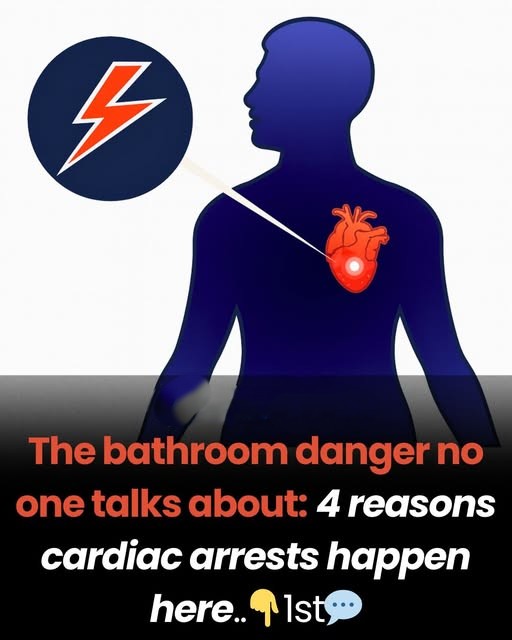
4 Reasons Why Cardiac Arrests Happen in The Bathroom
When constipated, people instinctively perform something called a valsalva maneuver. This increases the abdominal pressure and helps force out the stools.
But this action is also very stressful to the heart and the circulatory system, as it increases the pressure inside the chest, thus reducing the blood flow to the heart.
This causes the pumping of the heart to slow down, and the amount of blood being sent to nourish the brain decreases. As a result, some people faint.
To make matters worse, after fainting, the body suddenly relaxes, which can abruptly increase the blood pressure, and this might cause some arteries in the brain to burst (stroke).
So, if your heart function is already compromised, excessive straining while moving one’s bowels could be a trigger for cardiac arrest, heart attack or stroke.
Number 2. Choosing the Wrong Temperature
Taking a shower that’s either too cold (water temperature below 70°F) or too hot (water temperature above 112°F) can quickly affect your heart rate, which can put stress on your arteries and capillaries.
There’s nothing better than taking a warm bath after a day’s work. While it rarely happens, bathing in water that’s much warmer than room temperature may trigger a cardiac event. This is especially true for individuals who have preexisting cardiovascular conditions, such as high blood pressure or heart disease.
Additionally, you’ll also want to avoid taking a hot bath after consuming a sleeping aid or relaxant medication.
Number 3. Mistaking The Correct Dosage
Mistakes can happen anytime. And taking the wrong dosage for certain drugs and medication can lead to sudden cardiac arrest in some cases.
If you keep the majority of your prescriptions in a bathroom medicine cabinet, this may put you at greater risk of experiencing cardiac arrest in the bathroom.
Number 4. Slipping in the bathroom
Bathrooms tend to have naturally slippery surfaces and are often wet. Furthermore, there are sharp edges that pose additional hazards.
When elderly and frail individuals slip in the bathroom, they can hit their heads, which can lead to fainting or bleeding in the brain (subdural hemorrhage).
While fainting won’t cause a cardiac arrest, it can prove to be just as fatal if no one is on site to help.
One way to prevent this from happening is to spread out bath mats with suction cups to cover slippery surfaces.
You may also want to consider setting up a safety system with a family member who can check on you if you’re in the bathroom beyond a certain amount of time.